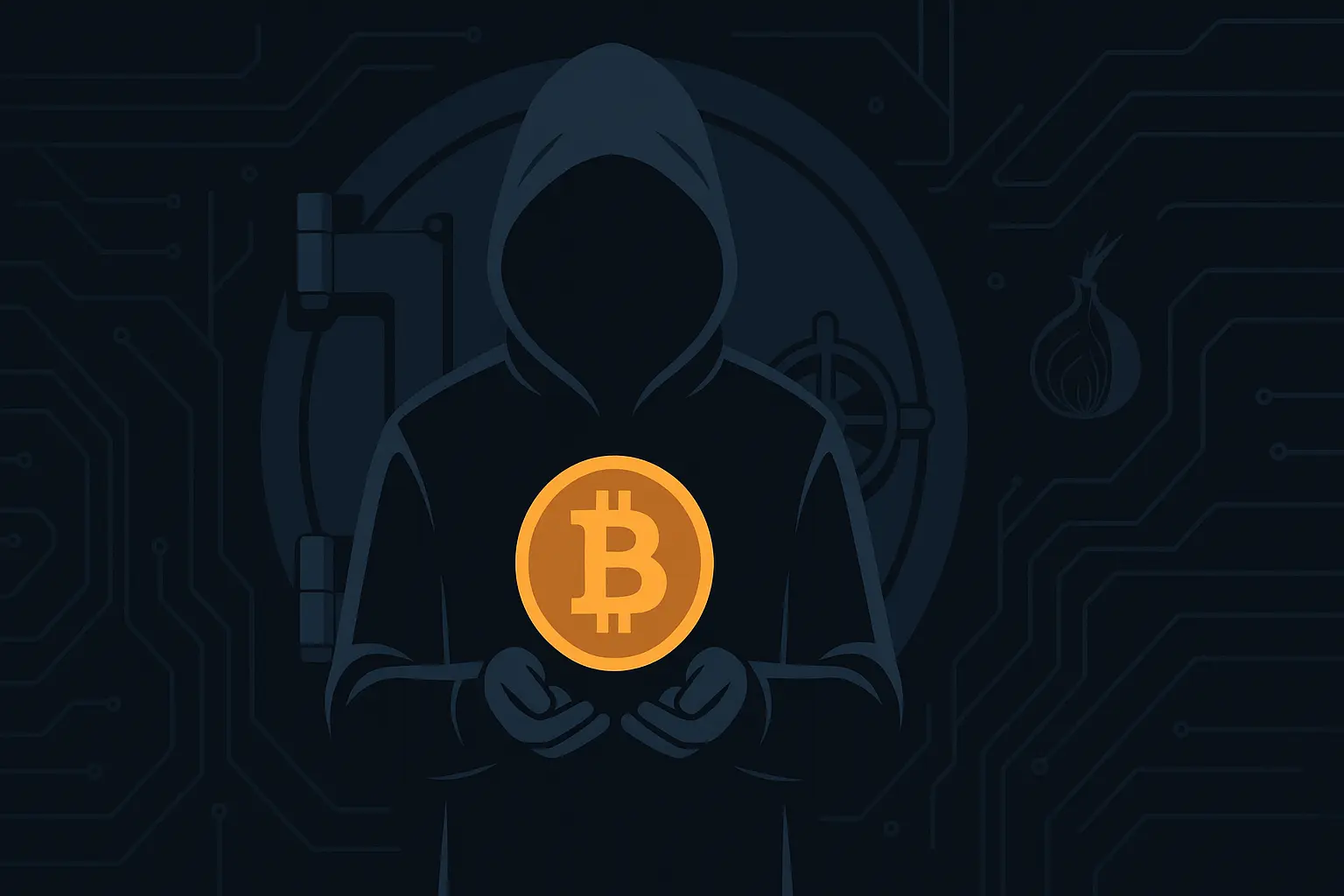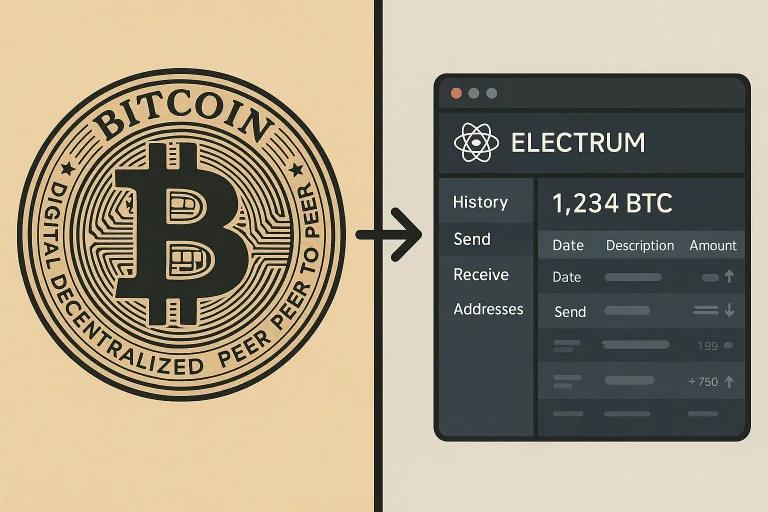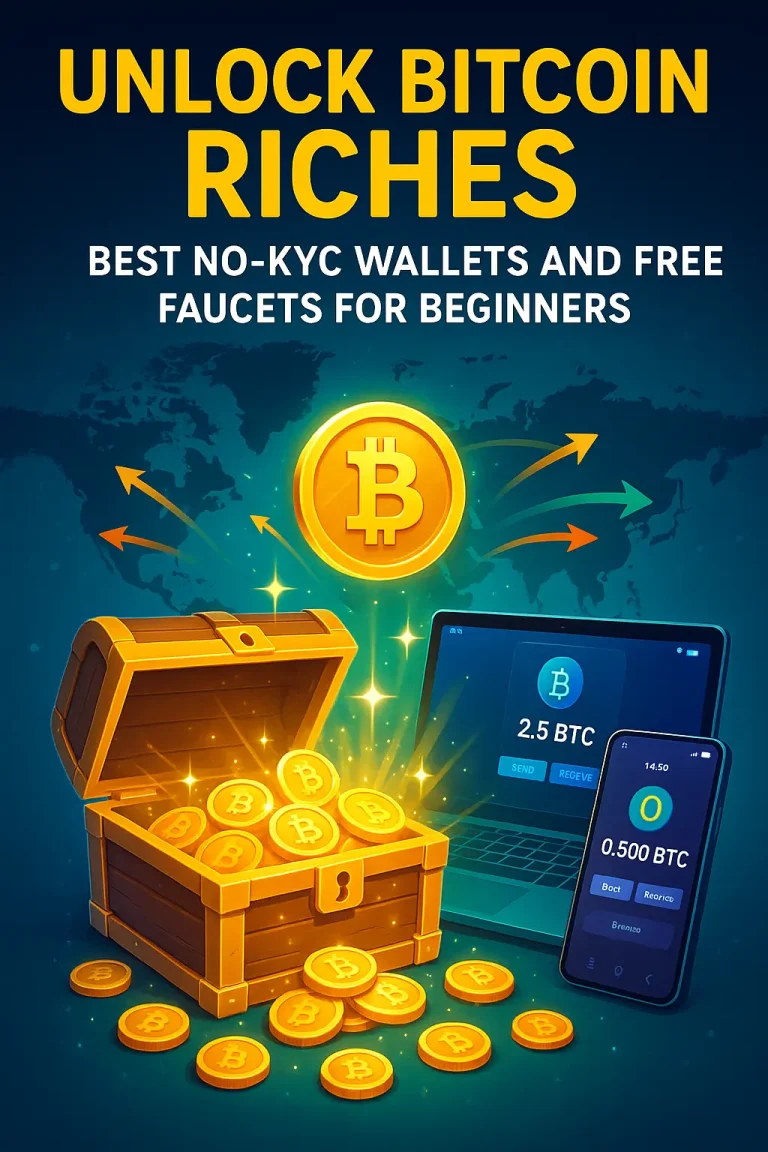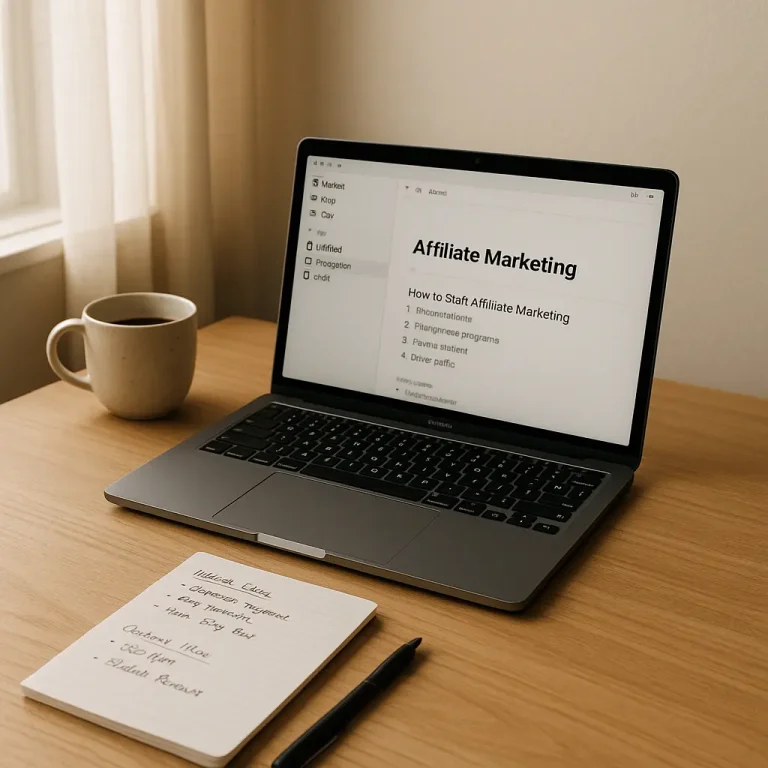
For Total Beginners in Asia, MENA, and Beyond
By someone who knows you don’t want your face scanned or your bank calling you.
THIS is how you buy bitcoin without KYC!
What Is Bitcoin and Why Does It Matter?
Bitcoin is digital money that runs on a decentralized network. No company, government, or authority controls it. Anyone can use it. All you need is a phone and a free wallet app.
But Bitcoin is more than money. It’s a political tool. It’s economic permissionlessness. It’s the first truly neutral system for exchanging value—without borders, IDs, or institutions.
And that’s why governments hate it, banks fear it, and free thinkers adopt it.
Bitcoin matters if:
- Your country restricts financial freedom
- You send/receive money across borders
- You want to save outside your collapsing currency
- You value privacy or want to exit centralized control
If you're reading this, chances are you don’t want to give your passport and fingerprints to a company just to store $100 worth of Bitcoin. You're not alone—and you're not screwed.
Why You Should Avoid KYC (Even If You Have Nothing to Hide)
KYC (Know Your Customer) is the process where platforms demand your personal info—ID, phone number, sometimes even a selfie video—to let you trade.
Here’s what happens when you give it up:
- Your transactions are logged and tied to your legal identity
- Your data is stored in corporate databases (and often leaked)
- You're exposed to surveillance and financial blacklisting
- You lose the core advantage of Bitcoin: sovereignty
KYC doesn't stop fraud. It creates honeypots for hackers and gives centralized choke points to governments. Even if you're doing nothing wrong, you’re building a paper trail that can be used against you.
Once your name is on a Bitcoin address, your privacy is gone. Blockchain is forever.
The only way to truly use Bitcoin as it was meant to be used… is without KYC.
How Bitcoin Privacy Actually Works (or Doesn’t)
Most people think Bitcoin is anonymous. That’s wrong. It’s pseudonymous—your name isn’t on the blockchain, but every transaction is public.
Here’s what the blockchain shows:
- Every address (wallet) you use
- Every time you send or receive BTC
- The exact amount and timestamp
- Who you interacted with (by address)
If you reuse addresses, or use KYC exchanges, your pseudonym links back to you. Fast.
So how do you stay private?
You need:
- A no-KYC source of coins
- A wallet that supports coin control
- Optional: tools like coinjoin, Tor, and Lightning
Privacy is not automatic. It’s something you do, not something you get. And this guide will show you exactly how.
How to Get Bitcoin Without KYC
Use a Peer-to-Peer (P2P) Marketplace
These are platforms where real people buy and sell Bitcoin directly.
What to Look For:
- Escrow protection (you don’t get scammed)
- Reputation scores or feedback
- Support for cash, bank transfers, or local methods
Best P2P Platforms:
| Platform | KYC Required? | Escrow | Type | Notes |
|---|---|---|---|---|
| Bisq | No | Yes | Decentralized | Desktop only, very private |
| Hodl Hodl | No | Yes | Web-based | Multisig escrow, global reach |
| Peach | No | Yes | Mobile | Growing in EU/Asia |
| RoboSats | No | Yes | Tor-based | Great for Lightning, privacy-focused |
| AgoraDesk | No | Yes | P2P Web App | Cash trades, inherited from LocalMonero |
Region-Specific Guides: How to Get Bitcoin Without KYC in Your Country
These aren’t abstract tips—they’re based on what actually works in each location.
Pakistan
Common Issues:
- Banks are tightly monitored
- Crypto is frowned upon (but not outright banned)
- Mobile money (e.g., JazzCash, EasyPaisa) is popular
- Access to P2P sellers is inconsistent
What Works:
- HodlHodl and AgoraDesk with JazzCash or bank transfers
- Local Telegram P2P channels like “CryptoPK”, “Binance P2P Pakistan”, etc.
- Cash deals via OLX listings or university networks
- Accept BTC for freelance work (Upwork + private payment)
Pro Tip: Use two wallets—one to receive (burner), one to store (cold). Don’t reuse addresses. Bisq works in Pakistan with Tor + VPN.
India
Common Issues:
- Banks monitor for crypto-related keywords
- UPI is fast but often blocked for P2P BTC purchases
- Central exchanges are heavily KYC'd
What Works:
- LocalBitcoins is dead; AgoraDesk is active
- Cash deals via WhatsApp or local crypto groups
- Small trades with Amazon India gift cards via indirect trades (Purse, OTC dealers)
- Freelancing for BTC payouts (or stablecoins, then swap via Bisq)
Pro Tip: Use BlueWallet or Phoenix Wallet with Lightning for low-fee trades. Use cash to buy BTC gift vouchers if you don’t want on-chain history.
UAE
Common Issues:
- Oversaturated with fake exchanges
- Easy to get scammed if you’re not careful
- Too many “luxury” platforms with terrible support
What Works:
- HodlHodl with local AED sellers
- P2P cash deals in Dubai—plenty of legit OTCs (e.g., Coinsfera, Palladium OTC)
- Meetup trades (public spaces, mall cafés, etc.)
- Some real estate agents accept BTC—use them for larger exchanges (indirect method)
Pro Tip: Use Sparrow Wallet with custom UTXO control for advanced privacy. Dubai OTCs often don't require ID if you're under $500 per trade.
Saudi Arabia
Common Issues:
- Conservative financial system
- Crypto isn’t banned, but it’s under scrutiny
- No local crypto exchanges operate without KYC
What Works:
- Cash deals via Snapchat, Instagram, and Telegram
- P2P trades using bank transfers or STC Pay
- Use friends in UAE to buy BTC and send via Lightning
- Bisq works well if you have access to non-KSA payment methods
Pro Tip: Stick to low-volume trades (< SAR 1,000) to avoid triggering flags. Use Monero → BTC swaps if you want extreme deniability (via Haveno or local swaps).
Thailand
Common Issues:
- Exchanges like Bitkub require KYC
- QR payments are monitored
- High scams in Bangkok tourist zones
What Works:
- Telegram groups: “Crypto Thailand P2P”, “Thai Hodlers” (BTC/USDT groups)
- Bitcoin ATMs (rare, but exist in Bangkok)
- Freelance BTC-for-baht trades in coworking spaces
- Accept BTC for services like tutoring, design, etc.
Pro Tip: Use Phoenix Wallet for mobile Lightning. If doing cash trades, always test with 100 baht first.
Philippines
Common Issues:
- Coins.ph and GCash are deeply tied to KYC
- Remittances dominate the economy
- High volume, but mostly goes through Binance
What Works:
- Cash trades via FB groups (e.g., “Bitcoin Philippines P2P”)
- Telegram OTC dealers offering manual trades via GCash/Palawan
- HodlHodl with peso sellers (rarer but possible)
- Sell load (mobile credit) in exchange for BTC
Pro Tip: Use Samourai Wallet with Whirlpool mixing if holding for privacy. For quick Lightning use, Breez or Wallet of Satoshi work well.
Essential Wallets for No-KYC Bitcoin
You don’t just need a wallet. You need the right type for the job.
| Use Case | Wallet | Privacy Level | Notes |
|---|---|---|---|
| Receiving BTC | BlueWallet | Medium | Beginner-friendly, supports Lightning |
| Spending small | Phoenix | Medium | Great UX, instant Lightning payments |
| Cold storage | Sparrow Wallet | High | Coin control, compatible with hardware wallets |
| Mobile + mixing | Samourai | Very High | Whirlpool integration, stealth mode |
| Max privacy | Electrum + Tails OS | Extreme | Advanced only, full control, no traces |
Real Risks, Common Scams, and How to Not Get Rekt
If you operate outside the KYC system, you get freedom—but you also lose institutional safety nets. There’s no support desk. No refund button. No chargeback.
This is why scammers target no-KYC users. Here’s how to stay two steps ahead.
Fake Escrow
You meet someone on Telegram. They say, “Don’t worry, we’ll use escrow.” Then they link you to a site that looks real—but they own the escrow.
How to avoid:
- Only use verified P2P platforms like HodlHodl, Bisq, or RoboSats.
- If the site isn’t widely known in the community, it’s probably fake.
- Never trust an escrow just because the site looks real.
Chargeback Trades
You trade BTC for a bank or mobile money transfer. Then the other person reverses the payment (claims fraud, uses bank dispute).
How to avoid:
- Don’t accept reversible payments (PayPal, cards, etc.).
- Favor cash, gift cards, or hard-to-reverse local transfers.
- Do trades in small batches—don’t let them “buy $1,000” on first contact.
Dusting + Tracking
You receive a small amount of BTC randomly—this is called a dusting attack. It’s a way to link your wallet to others and de-anonymize you.
How to avoid:
- Use wallets with coin control (Sparrow, Samourai).
- Never spend mixed coins with unmixed ones.
- If you see unknown UTXOs in your wallet, label them and isolate.
“Verification Required” Trap
A platform advertises “no KYC,” but once you deposit, they lock your funds and say “KYC is required to withdraw.”
How to avoid:
- Never use an exchange without checking its exit policy.
- If it smells like Binance, it is Binance—just with lipstick.
- Test any new service with a tiny amount first ($5–$10 equivalent).
Telegram Impersonators
You post in a group asking for help. Five “admins” DM you, all with similar usernames, trying to phish you.
How to avoid:
- Never trust DMs on Telegram unless you initiated contact.
- Verify usernames, PGP keys, or use platforms with strong feedback systems.
- Assume everyone DMing you is lying until proven otherwise.
FAQ: Common Questions from No-KYC Beginners
Can I buy Bitcoin with PayPal or a debit card without KYC?
No. Every PayPal, credit card, or regulated payment processor is tied to your identity. Even if the site says “no KYC,” the payment method exposes you.
Is it illegal to use Bitcoin privately?
In most countries, owning or spending Bitcoin isn’t illegal—but using it privately might violate financial surveillance laws. However, just being private isn’t a crime unless you combine it with illegal activity.
Check local laws—but don’t assume that “gray area” means “you’ll go to jail.” Millions of people do this daily.
Can I sell Bitcoin without KYC?
Yes. Via:
- Telegram/WhatsApp deals
- AgoraDesk or HodlHodl (set up offers)
- In-person meetups or OTC brokers
- Earning BTC for services, then spending it
You just need to avoid centralized platforms and never let your coins touch a KYC exchange on the way out.
What’s the best wallet for long-term private storage?
Use Sparrow with a hardware wallet (e.g., Coldcard, Trezor, SeedSigner). You get:
- Full UTXO control
- Open-source code
- No mobile data leaks
- Optional mixing via Whirlpool or manual coinjoin
I accidentally sent coins from a KYC exchange. Am I compromised?
If the sending wallet is tied to your name, yes—that BTC is traceable. Your best bet is to:
- Mix it via Samourai Whirlpool or JoinMarket
- Don’t combine it with private coins
- Use it for non-sensitive payments only
You didn’t destroy your privacy—but you need to segment it.
Checklists, Resources, and Setup Templates
Beginner No-KYC Bitcoin Setup (Mobile Only)
- Download Phoenix Wallet or BlueWallet
- Buy BTC via:
- AgoraDesk (cash or bank)
- Telegram P2P trade (use trusted group)
- OTC broker (Dubai, Bangkok, Karachi, etc.)
- Receive BTC to wallet, label transaction
- Enable backup phrases and store offline
- Spend via Lightning or export to cold wallet for storage
Full Privacy Setup (Desktop Power User)
- Get Sparrow Wallet on your laptop
- Run via Tails OS or behind Tor
- Create wallet with strong seed phrase
- Connect to your own Electrum server (optional, for max privacy)
- Fund it via Bisq trade or cash deal
- Enable coin control, labeling, and UTXO management
- Periodically mix coins via Whirlpool or JoinMarket
Cash-to-BTC In-Person Deal Template
You need:
- Burner wallet (BlueWallet or Phoenix)
- Backup of seed phrase written on paper
- Agreed meeting spot (public, daylight)
- Exact amount in cash (small bills)
Steps:
- Meet seller at safe location
- Scan BTC QR address from your burner wallet
- Watch seller send funds
- Wait for 1 block confirmation (if you don’t trust them)
- Hand over cash only when transaction is live
- Optional: Mix the coins before storage
🔗 Resources (Direct Links to Bookmark)
- https://bisq.network – Fully decentralized BTC DEX
- https://hodlhodl.com – Escrow-based global P2P
- https://peachbitcoin.com – Mobile P2P, growing fast
- https://robosats.com – Tor-based P2P with Lightning
- https://agoradesk.com – Cash-friendly P2P, old-school UX
- https://samouraiwallet.com – Android wallet for mixing
- https://sparrowwallet.com – Advanced desktop wallet
Final Words
This guide wasn’t made for tourists. It’s for people who want real, working systems to stay financially independent in high-surveillance zones.
No-KYC Bitcoin is slower, less convenient, and sometimes awkward—but it’s the only path that actually gives you ownership.
Not just of the coins—but of your freedom.




[…] Sources: Wallet and faucet info sourced from trusted crypto sites like 99bitcoins.com and coinbureau.com.For more ways to buy or sell Bitcoin read this article: https://cyverium.com/buy-bitcoin-no-kyc/ […]
[…] Download a Wallet: Trust Wallet or MetaMask are beginner-friendly. Or one of other reputable options for storing non-KYC crypto. […]